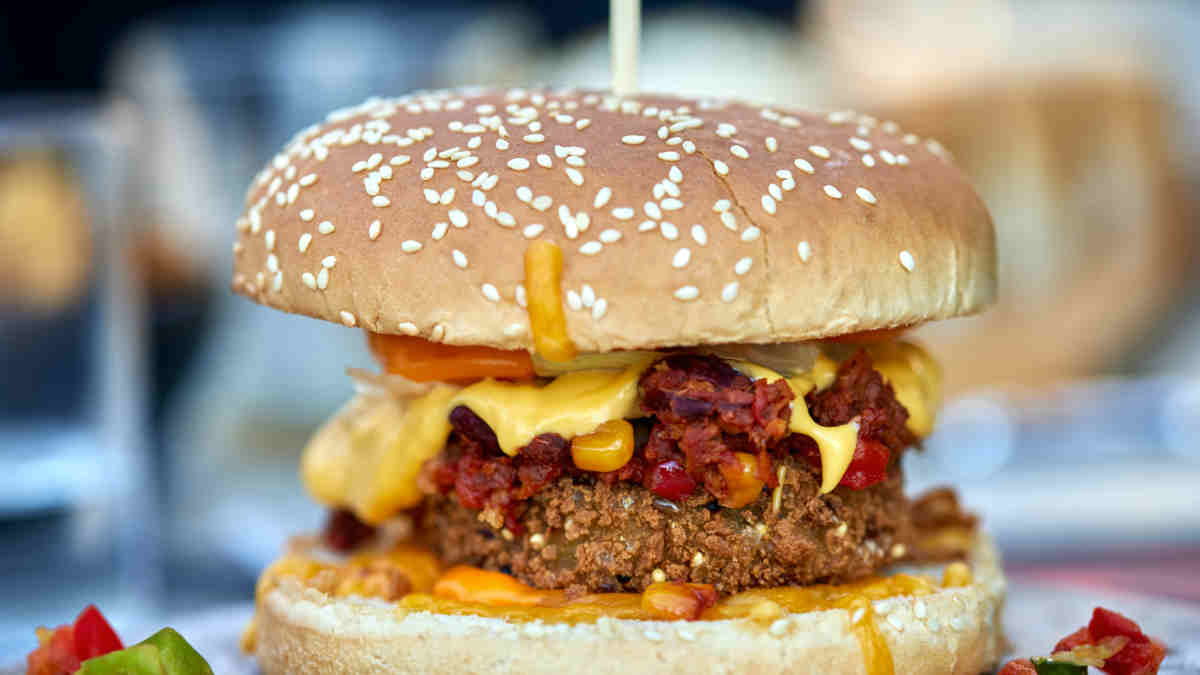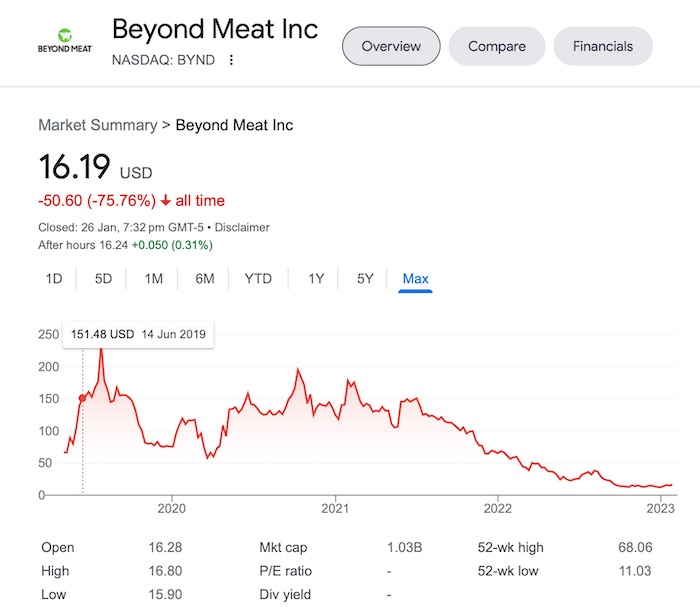The Ethical Investor: Meatless meat has always had ESG credentials. But is it just a fad?

Is meatless meat a fad or future? Picture Getty
- Plant-based food has always had ESG credentials, but sales are now declining
- Bill Gates, in a trip to Australia, said the rich world should move to fake meat
- So will synthetic meat move to the mainstream, or is it just a fad?
The food industry is an obvious focus for ESG investors because what we eat today not only determines our health tomorrow, but also our planet’s.
It’s a well known fact that raising livestock generates as much as a quarter of the world’s greenhouse gas (GHG) emissions.
So while our focus on climate tends to be on clean energy solutions, a big chunk of the GHG problem can apparently be solved if we stopped eating meat.
Not all animals are born equal however. Grazing animals such as cattle, sheep and goats have a far larger GHG footprint than non-grazers like pigs and chicken.
Bill Gates, who’s on a trip to Australia this week, told the Lowy Institute: “We’re certainly not going to get people to be vegetarians.”
“Although from a climate point of view, and maybe from a health point of view if you’re careful to take the right vitamins, that’s beneficial.”
Gates has always been a proponent of plant-based foods and said that we should shift to synthetic beef.
“I do think all rich countries should move to 100% synthetic beef,” he said.
“You can get used to the taste difference, and the claim is they’re going to make it taste even better over time.
“Eventually, that green premium is modest enough that you can sort of change the behaviour of people, or use regulation to totally shift the demand.”
Falling sales
The synthetic or fake meat craze took the world by storm in 2014 when Los Angeles–based Beyond Meat launched a plant-based, vegan meat alternative that looks, cooks and tastes like meat.
Beyond Meat’s products are mostly made from a combination of peas, mung beans, faba beans, and brown rice, as well as vegetable fats from coconut and canola.
“You can either fix the cows …. or you can make meat without the cow,” said Gates, who’s also an investor in the company.
As sales soared, Beyond Meat went public in 2019, listing its shares on the Nasdaq exchange under the symbol BYND.
But things have been heading downhill and the BYND share price has since tanked rapidly, dropping from a high of US$235 in August to 2019 to US$16 today.

The company has pinpointed a few problems, including the fact that interest in plant-based meats has waned as consumers, faced with inflation, focus on shopping for affordable basics.
At the same time, restaurant traffic has also dipped as people pulled back on dining out in favour of eating at home.
As sales collapsed, critics were quick to call the whole industry a fad – saying it would never proliferate to the mainstream beyond the vegan community, despite surveys showing that more than 80% of plant-based food eaters were non-vegans.
ESG impacts of meatless meat
On its website, Beyond Meat claims that making a Beyond Burger takes significantly less water, land and energy than a quarter pound of a US regular beef burger.
And unlike the quarter-pound US beef counterparts, original Beyond Burgers can be made by generating 90% fewer GHG emissions.
Beyond Burgers also provide an excellent source of protein and 35% less total and saturated fat than 80/20 ground beef, the company says.
The official stats from the US government back these claims.
According to Stephanie Feldstein, director of the population and sustainability program at the Center for Biological Diversity, the environmental impact of meatless meats is just a fraction of the animal products they’re replacing.
“The most popular plant-based alternatives, Beyond Meat and Impossible Burgers, produce about 90 per cent fewer greenhouse gas emissions in comparison with beef,” Feldstein said.
“They reduce land use by at least 93 per cent and water use by 87 per cent to 99 per cent. They also generate no manure pollution.”
But at the end of the day, all food production requires some form of resources, and fake meat is no exception.
According to the author of Food Fix, Dr Mark Hyman, plant-based food also does harm to the environment through its use of tillage, which destroys soil carbon.
“Thirty to forty per cent of all the atmosphere carbon comes from the destruction of soil, through tillage and agricultural chemicals. That leads to climate change,” Dr Hyman said.
Just getting started
In an article published last week, Bloomberg Businessweek claimed that the plant-based food industry has been a flop, citing the abysmal financial performance of Beyond Meat over the past year.
Impossible Foods, a private company and the main competitor of Beyond Meat, promptly hit back at Bloomberg in a post titled:
“BLOOMBERG WAS SUPPOSED TO REPORT THE FACTS. IT BECAME JUST ANOTHER OPINION PIECE.”
Impossible defended the industry, saying the company has achieved record sales every year since it first launched on menus, including in 2022.
“Nearly half of people who try Impossible products purchase them again — a significant and promising retention rate,” the company said in the post.
According to Impossible, the plant-based meat category is still young and yet to be fully defined.
“There are hundreds of amazing plant-based meat companies right behind us that will grow, thrive, and continue to advance our mission.
“We like to think we’re speaking for all of the players in the plant-based space when we say — we’re just getting started.”
Related Topics
UNLOCK INSIGHTS
Discover the untold stories of emerging ASX stocks.
Daily news and expert analysis, it's free to subscribe.
By proceeding, you confirm you understand that we handle personal information in accordance with our Privacy Policy.








